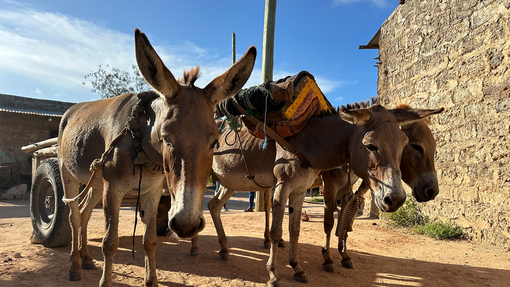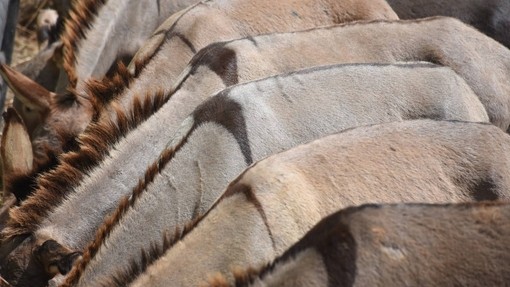
Partnering with SPANA for a one-day conference in Zimbabwe
The conference was supported by deputy director of veterinary public health, Dr Jairus Machakwa, who confirmed that produce export legislation in Zimbabwe does not include donkeys or any other equines, meaning that these animals may not be slaughtered for meat export – and by implication nor may their skins be exported.
Both The Donkey Sanctuary and SPANA publicly support Zimbabwe’s efforts to curb the slaughter of donkeys and the trade in their skins for use in traditional Chinese medicine but want the government to take further action to safeguard the country’s equine population.
Dr Keith Dutlow, SPANA Zimbabwe country director adds: “Donkeys play a vital role in providing livelihoods for rural communities, so this conference was designed to raise awareness about the incredibly harmful long term impact the skin trade is having. Our aim is to prevent the devastation caused by this horrific trade, which is destroying rural communities, undermining communities and leading to the brutal slaughter of a vast number of animals throughout Africa.”
The conference was hosted by Animal and Wildlife Research and Rehabilitation (AWARE) and Lupane Youth for Development (LUYD).
During the conference, local chief Khulumani Mathema said: “We thought this [trade/slaughter] was a donkey meat enterprise and as no-one here eats donkey meat, we never thought it would be a big risk. Now we are learning about the actual situation and we see the threat is real.”
The conference follows the government’s refusal to licence the country’s first donkey abattoir in Bulawayo. The abattoir was set to process up to 70 donkeys a day to fuel demand for donkey skins for the production of ejiao, which is used in Chinese medicine products. Opposition from the public as well as animal welfare groups prevented the abattoir from opening. But according to research by The Donkey Sanctuary and SPANA, at least 105 animals had already perished on its premises and scores more continue to suffer to this day due to neglect at the abandoned site.
The donkey skin trade in Africa has been driven in recent years by escalating demand for traditional ejiao made from a type of gelatin found in donkey skins. The trade is threatening the livelihoods of many of the continent’s most vulnerable communities, which rely on working donkeys.
Help make a difference
Donate todayShare this page
Tags
- News





